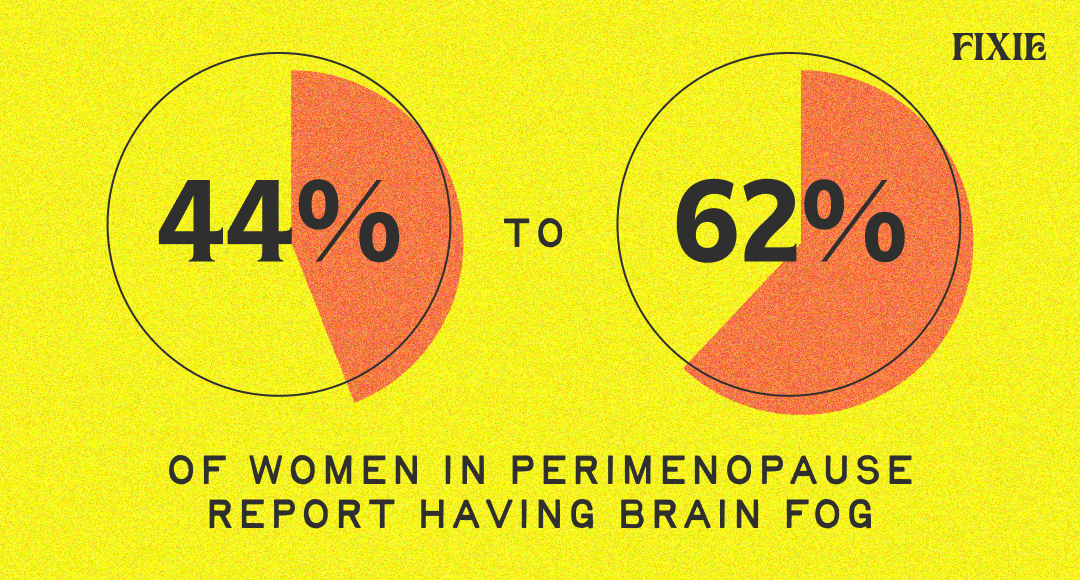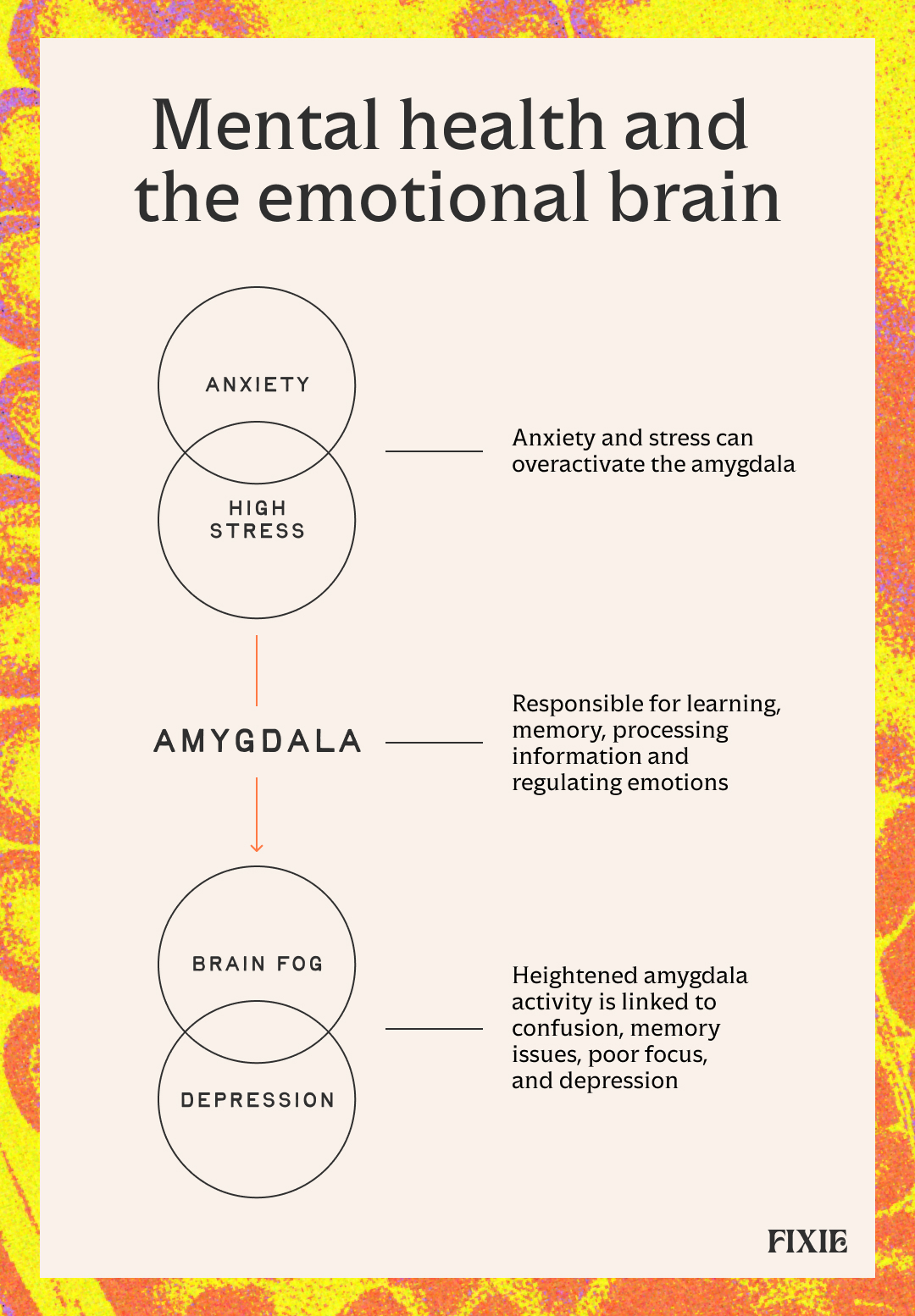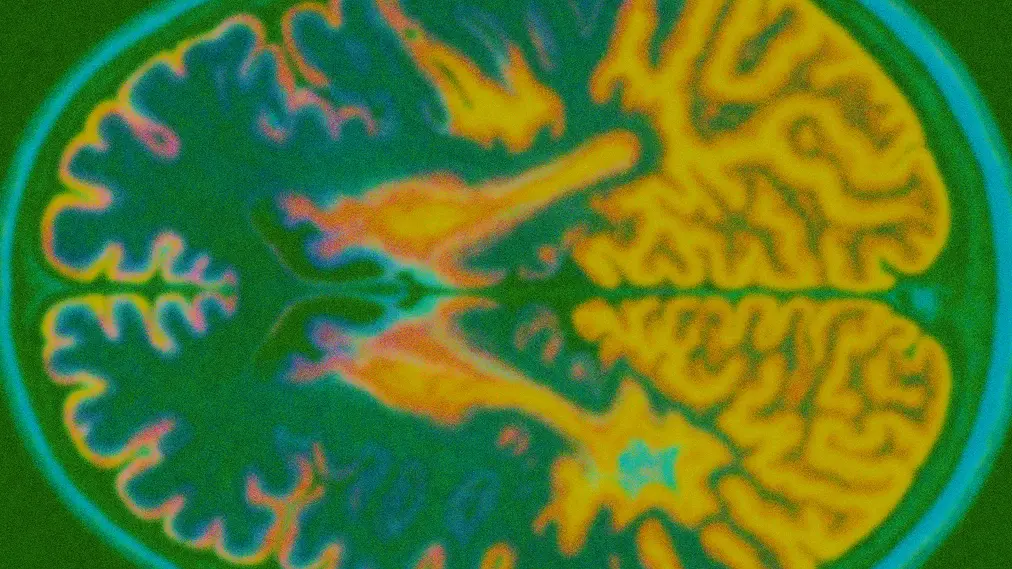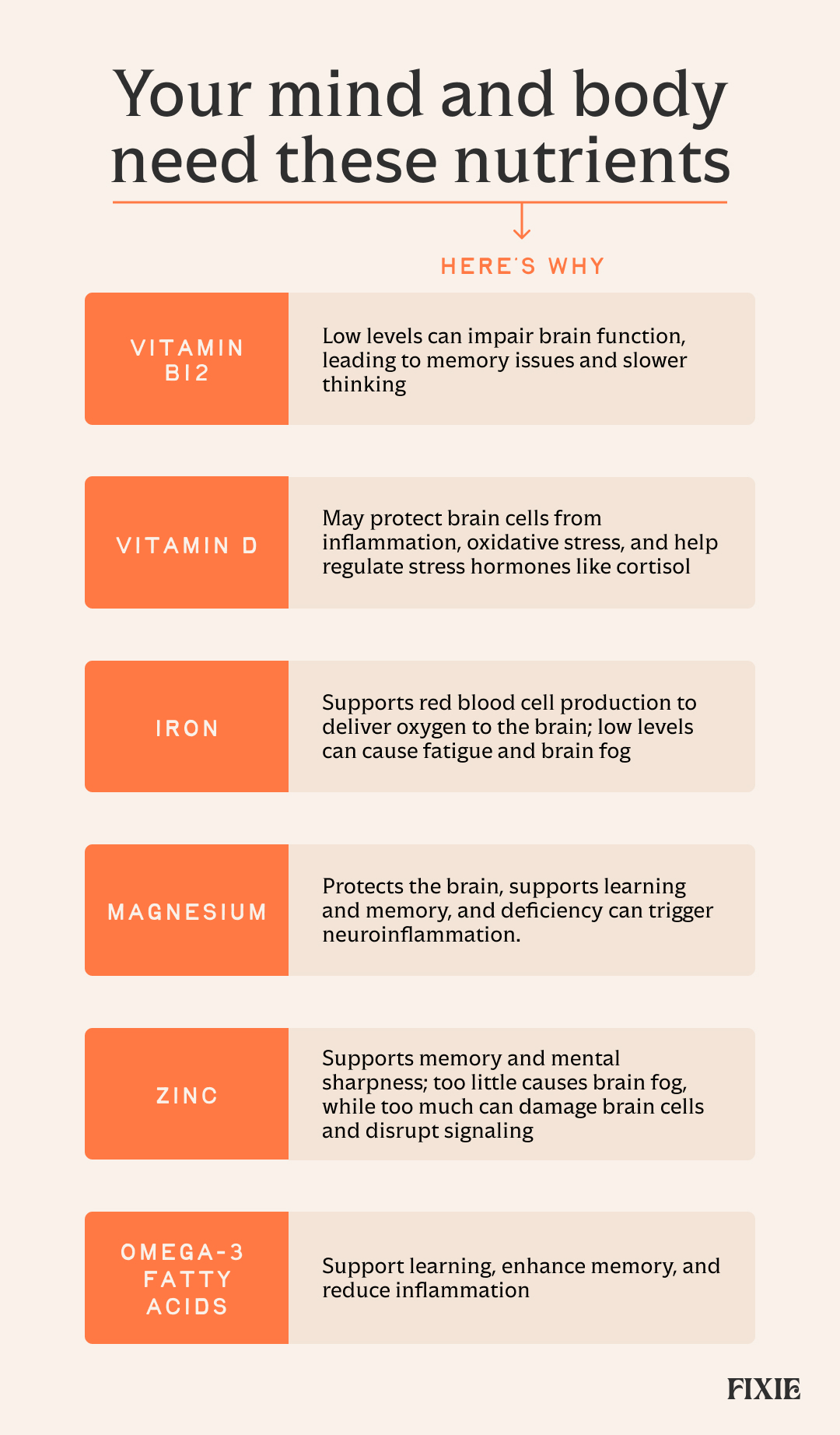What Causes Brain Fog? 12 Common Triggers
.jpg)
Does your brain feel like it’s running at half-speed? We’ve all been down the brain-fog road at one point or another. But why does it happen? We dug into the science to give you a full rundown of what can cause brain fog.
Sometimes brain fog causes are pretty obvious—like when you spent most of the night tossing, turning, and making a (very long) mental to-do list instead of actually sleeping. Other times the source of a hazy mind is a mystery.
“Brain fog is like an unorganized computer,” says Michele Leno, Ph.D., a licensed psychologist at DLM Psychological Services in Michigan and the host of “Mind Matters With Dr. Michele” in Detroit. “You know the information is there, but retrieving it takes several minutes, or more.”
And those foggy feelings are all too common, especially among women. Some research estimates 44% to 62% of women in perimenopause (which can last for five years or longer, usually starting in your 40s) report having brain fog. But it’s not exclusive to middle age. Brain fog befalls younger women (and yes, men), too.

So, we know what brain fog is, and we know we’re probably going to experience a bout of it at some point, if we haven’t already. But what causes brain fog? In short: lots of things. Let’s dig into the top causes of brain fog to figure out what you need to know.
Mental health issues
“Anxiety, depression, and high stress can affect cognitive functions,” Leno says. “Persistent emotional distress overloads the brain and its ability to function properly.”
Multiple parts of the brain are involved in mental health. One of these is the amygdala, which Leno calls “the emotional brain.” It’s involved with learning and memory and helps us process information and emotions. Plus, it regulates anxiety and fear responses.
When we feel overwhelmed by anxiety, stress, or other mental health issues, it’s as if an internal dam breaks and “floods” the amygdala. Research has found amygdala activity is higher in people with depression. This is often associated with confusion, poor recall, and difficulty focusing.
Imbalances in neurotransmitters and fluctuations in hormones are tied to depression, anxiety, and other mental-health disorders. Insomnia or disrupted sleep are also regular issues in people struggling with their mental health — also often making our minds feel muddy.

Hormonal imbalances
Women commonly experience brain fog at times when their hormones fluctuate: during their menstrual cycle, during pregnancy and postpartum (hello, baby brain), and the menopause transition.
Sex hormones like estrogen, progesterone, and testosterone are involved in brain function. Estrogen, especially, is linked to cognitive processing. Estrogen receptors exist in areas of the brain that regulate cognition and mood. Plus, estrogen has anti-inflammatory and other protective qualities for the brain and assists in the growth and repair of brain cells.
Cortisol, one of the stress hormones, also has a lot to do with those foggy feelings. When we’re stressed about work, our kids, or just general busy-ness (and, seriously, who isn’t), cortisol levels can rise as part of the sympathetic nervous system’s response to that stress. When we’re chronically stressed out, cortisol keeps our brains and bodies on high alert. High cortisol is also disruptive to sleep.
“When cortisol is peaking, it can impact memory and focus,” says Brianna Paruolo, LCMHC, a licensed clinical mental health counselor at On Par Therapy in New York City, who works mostly with high-achieving Gen Z and young Millennial women. “Our brain is going to kick into high gear, into hyperarousal, and it’s harder to search for those words, those memory callbacks, or do things you want to do.”
Not producing enough thyroid hormones (hypothyroidism) or too much (hyperthyroidism) affects how the body uses energy, making fatigue a common problem already. Similarly, an imbalance of the hormone can also lead to problems with memory and concentration.
Perhaps not surprisingly, fatigue and forgetfulness are the most common brain fog symptoms in people with a thyroid disorder. People receiving thyroid replacement treatment also often report experiencing brain fog, with many saying they experienced it before treatment.
{{cta-component}}
Nutritional deficiencies
What we eat fuels our minds and our bodies. A deficiency in certain nutrients can affect how our brains work and increase the chances of brain fog, as well as depression and anxiety.
VItamin B12
Even mildly low levels of vitamin B12 can affect how well our brains work. Research has found lower vitamin B12 levels are tied to reduced cognitive performance, including poorer memory and slower thinking.
Vitamin D
Don’t skip that sunshine. Vitamin D is thought to have neuroprotective benefits for brain cells against inflammation and oxidative stress. The vitamin might also influence the hypothalamic–pituitary–adrenal (HPA) axis, which regulates stress hormones like cortisol.
Iron
Iron helps with the production of red blood cells, which move oxygen to the brain. Not enough of it can equal fatigue and a fog-filled noggin.
Magnesium
Magnesium also has protective properties for the brain and boosts neuronal plasticity—the mental flexibility that supports learning and memory. A magnesium deficiency can also result in neuroinflammation.
Zinc
Zinc is linked to memory, learning, and mental sharpness. Not enough of it can lead to classic brain fog symptoms. But there can be too much of a good thing when it comes to zinc: an excess can actually harm brain cells and disrupt nerve signaling.
Omega-3 fatty acids
You’ve probably heard the claims about fish oil pills and brain function, right? Those are omega-3 fatty acids at work. The three main omega-3’s are ALA (found mostly in plant foods), DHA, and EPA (found mostly in fish and seafood). Omega-3’s have been found to boost learning, enhance memory, and decrease inflammation.
Frequently Asked Questions
For sure. Anxiety and brain fog are often in a loop, with one making the other worse. The chemical and hormonal imbalances, hypervigilance, and rumination of anxiety—plus the poor sleep that often accompanies it—overwhelm the brain and make it harder to think clearly.
Definitely. Chronic stress can trigger a combo of high cortisol, disrupted sleep, and an overtaxed brain, leaving us feeling hazy and spacy.
The brain regulates cognition and mood, and water makes up 75% of the brain. When you’re dehydrated, your brain cells don’t work as well, which can affect clear thinking, focus, and short-term memory.
Yes. Cognitive impairment is very common in people with depression. Imbalances in brain chemicals and neurotransmitters can lead to brain fog, as can certain antidepressants.
Quite a few nutrients are linked to brain fog, if you don’t get enough of them. The big ones are zinc, vitamin B12, omega-3 fatty acids, iron, vitamin D, and magnesium.
There are lots of ways to try to prevent or lessen your brain fog, including getting plenty of sleep, managing stress, and cutting back on alcohol, added sugar, and ultra-processed foods. But even if you tackle the root cause of your brain fog, there’s no guarantee you will “cure” brain fog forever. It’s possible you might experience it again for a different reason.
Latest Posts







.svg)



.jpg)
